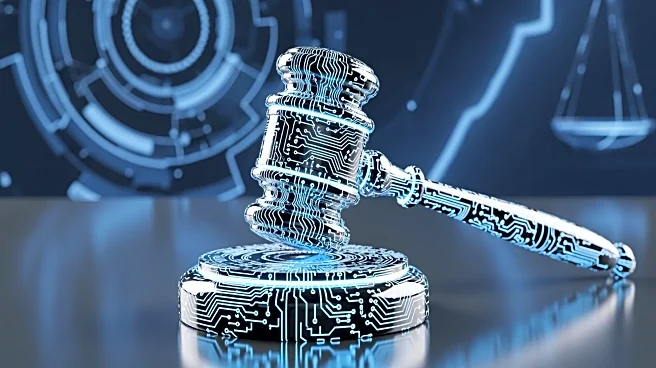What's Happening?
Elon Musk's legal team is appealing to the Delaware Supreme Court to reinstate his $56 billion pay package from Tesla, which was rescinded by a lower court ruling in January 2024. The Court of Chancery had determined that the Tesla board lacked independence
from Musk when approving the pay package in 2018, and shareholders were not fully informed. This ruling has led to significant corporate shifts, with companies like Tesla moving their legal bases to states with more favorable court systems. The appeal is crucial for Musk, as it could affect his compensation and influence Tesla's strategic direction.
Why It's Important?
The outcome of this appeal could have far-reaching implications for corporate governance and legal practices in Delaware, a state known for its corporate-friendly laws. A decision against Musk might reinforce stricter standards for board independence and shareholder transparency, potentially influencing how executive compensation is structured across industries. Conversely, a favorable ruling for Musk could encourage more companies to maintain their legal domicile in Delaware, preserving its status as a corporate hub. The case also highlights the tension between corporate governance and entrepreneurial leadership, with potential impacts on investor confidence and market dynamics.
What's Next?
The Delaware Supreme Court's decision will be pivotal in determining the future of Musk's compensation and Tesla's corporate strategy. If the court upholds the lower court's ruling, Tesla has a contingency plan to provide Musk with a replacement compensation package. The decision could also prompt further legislative changes in Delaware to retain corporate entities. Stakeholders, including investors and legal experts, are closely monitoring the case for its implications on corporate law and executive compensation practices.
Beyond the Headlines
This legal battle underscores the broader debate over executive pay and corporate governance. It raises questions about the balance between rewarding entrepreneurial success and ensuring fair practices for shareholders. The case could set precedents for how courts evaluate board independence and shareholder rights, influencing future corporate legal strategies and governance models.
















